
The global and societal impact of the research conducted by Unisa’s masters and doctoral students remains limited, noted Prof Tennysson Mgutshini, Executive Dean of the College of Graduate Studies, in his welcome address on the first day of Unisa’s Research and Innovation Week on 19 May. The session's theme was "Leveraging Unisa’s postgraduate studies for global competitiveness".
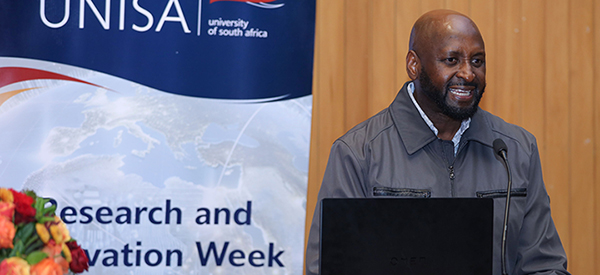
Prof Tennysson Mgutshini
"In the effort to massify research output among postgraduate students, its depth and impact have been diluted," said Mgutshini. To pursue meaningful societal contributions he emphasised the need to pause and inspire researchers to transform their academic journey into one that yields a substantive global influence.
He continued: "Academic institutions have increasingly been accused of becoming irrelevant, with industry prioritising mindset over mere qualifications. Research should not end as a static document – it must be applicable, shared and impactful. Expanding horizons beyond academia through interdisciplinary collaboration enriches scholarship. Researchers must ask: What value does this work provide beyond the classroom?"
Mgutshini commented that effective research should align with global needs and pursue a tangible societal impact. Addressing real-world challenges – such as climate change, health disparities and education – ensures relevance, while research findings should ultimately translate into actionable policies.
He highlighted recent studies indicating that South African postgraduate students often lack clarity in their research differentiation. The distinct contributions of master’s and doctoral students remain unclear, and the broader societal impact of their work is challenging to define.
Mgutshini reminded attendees that the foundation of postgraduate studies lies in mastering a specific field through rigorous and sustained inquiry while developing critical thinking and analytical skills. The attendees were encouraged to interrogate why many academics rely on a single research methodology rather than diversifying their approaches.
"Interdisciplinary collaboration," he said, "offers an opportunity to enrich research, and Unisa’s catalytic niche areas provide a valuable framework for fostering such engagement. Expanding research beyond academia strengthens its global significance, while international networking and participation in global forums cultivate cultural competence and broader perspectives."
Mgutshini also outlined strategies for aspiring global scholars, including lifelong learning, skills development, mentorship from experienced researchers and a strong commitment to research integrity and societal responsibility.
Adding to this discussion, Prof Moeketsi Letseka from the College of Graduate Studies urged academics to leverage their networks, exposing postgraduate students to the global community of researchers. He emphasised that collaboration within an institution and partnerships with other universities, government entities and the private industry could provide essential financial backing and intellectual enrichment.
He said that international research collaboration enhances both the process and its outcomes by broadening cultural perspectives and applications. Linking research to Unisa’s catalytic niche areas allows scholars to align their work with the United Nations’ Sustainable Development Goals.
Furthermore, Letseka stressed the importance of building international networks beyond South Africa’s borders. Global conferences and organisations such as the International Council for Open and Distance Learning (ICDE) offer valuable opportunities for research advancement.
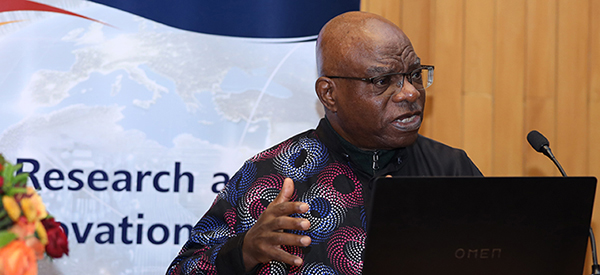
Prof Jimi Adesina
In his presentation, Meeting the Césaire challenge: Locally grounded, globally relevant scholarship, Prof Jimi Adesina, incumbent of the SARChI Chair in Social Policy at Unisa, urged scholars to move beyond protest-driven research. Instead, he said, postgraduate studies should focus on defining African scholarship in a locally grounded and globally engaged way. He advocated for an analytical approach where Africa is the central lens for its interpretation.
In conclusion, he said that a new perspective on social policy – one that encompasses production, protection, redistribution, reproduction and nation-building – would ensure a holistic approach to academic inquiry.
Dr Josiline Chigwada, postdoctoral research fellow in the College of Graduate Studies, emphasised that Unisa is already making significant strides toward having an international research impact. She underscored the importance of grounding postgraduate research in African contexts, stating, "If we don’t tell our own stories, the hunter will always be the hero".
* By Hanli Wolhuter, Communication and Marketing Specialist, College of Graduate Studies
Publish date: 2025-05-29 00:00:00.0
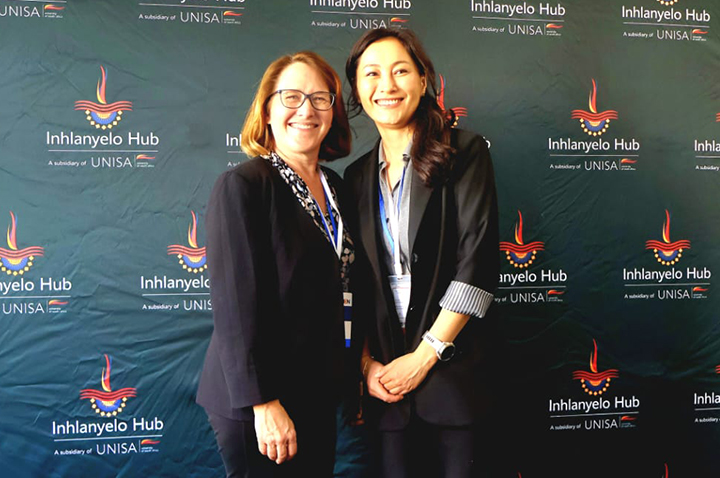 Unisa roundtable focuses on empowering SA women to lead in innovation
Unisa roundtable focuses on empowering SA women to lead in innovation
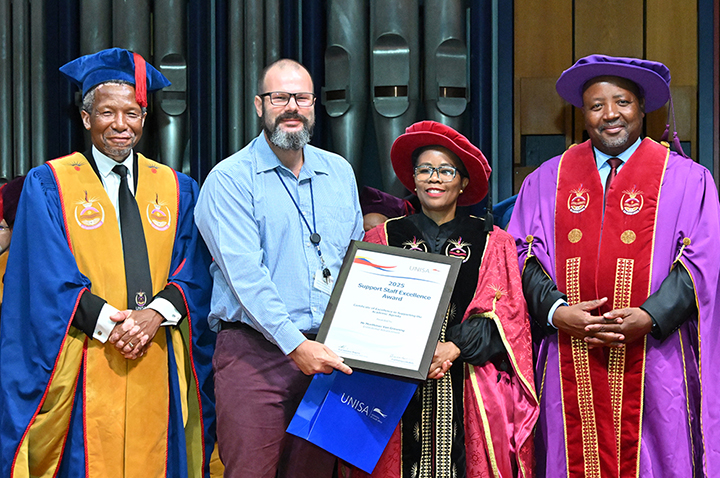 Unisan recognised for web excellence
Unisan recognised for web excellence
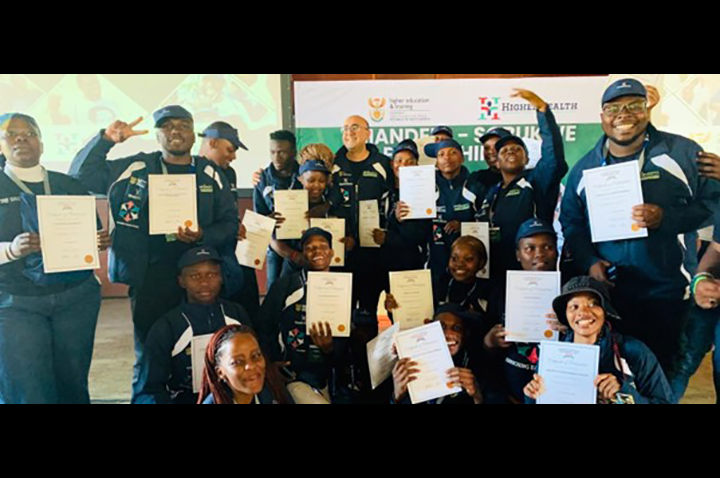 Office of the Dean of Students participates in leadership camp
Office of the Dean of Students participates in leadership camp
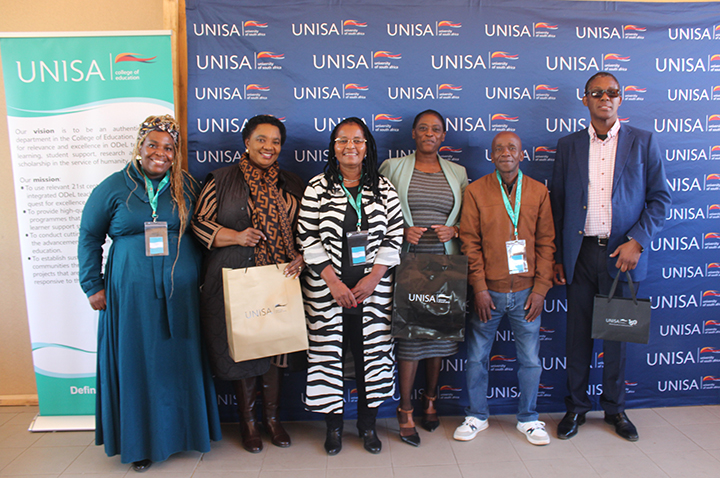 Unisa project fosters digital and pedagogical innovation in Limpopo schools
Unisa project fosters digital and pedagogical innovation in Limpopo schools
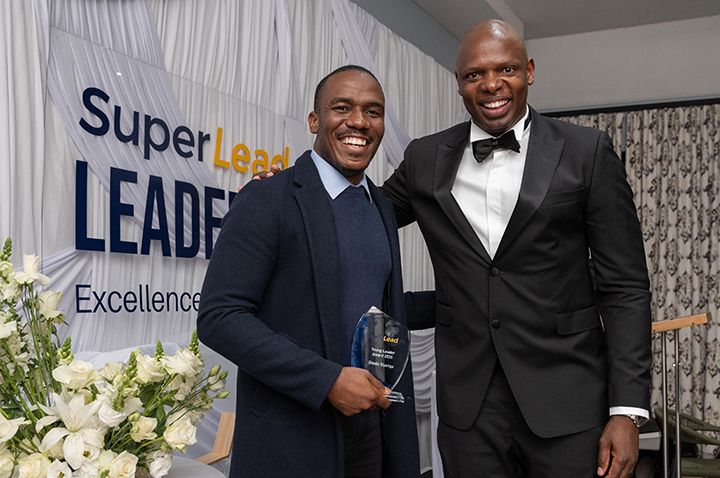 Unisa student wins prestigious national leadership award
Unisa student wins prestigious national leadership award